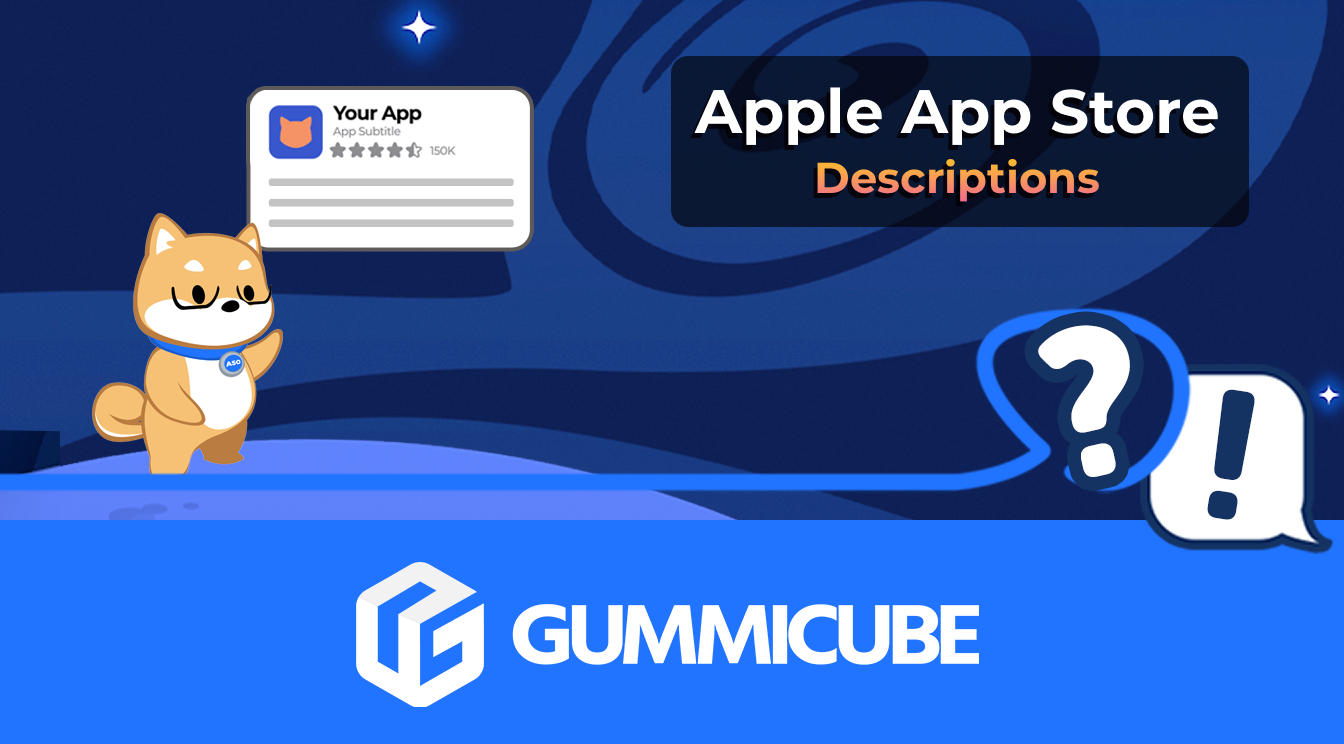
How to Write an Apple App Store Description
Posted on July 17th, 2024
Learn how to approach App Store descriptions the right way so you can effectively engage and convert users.
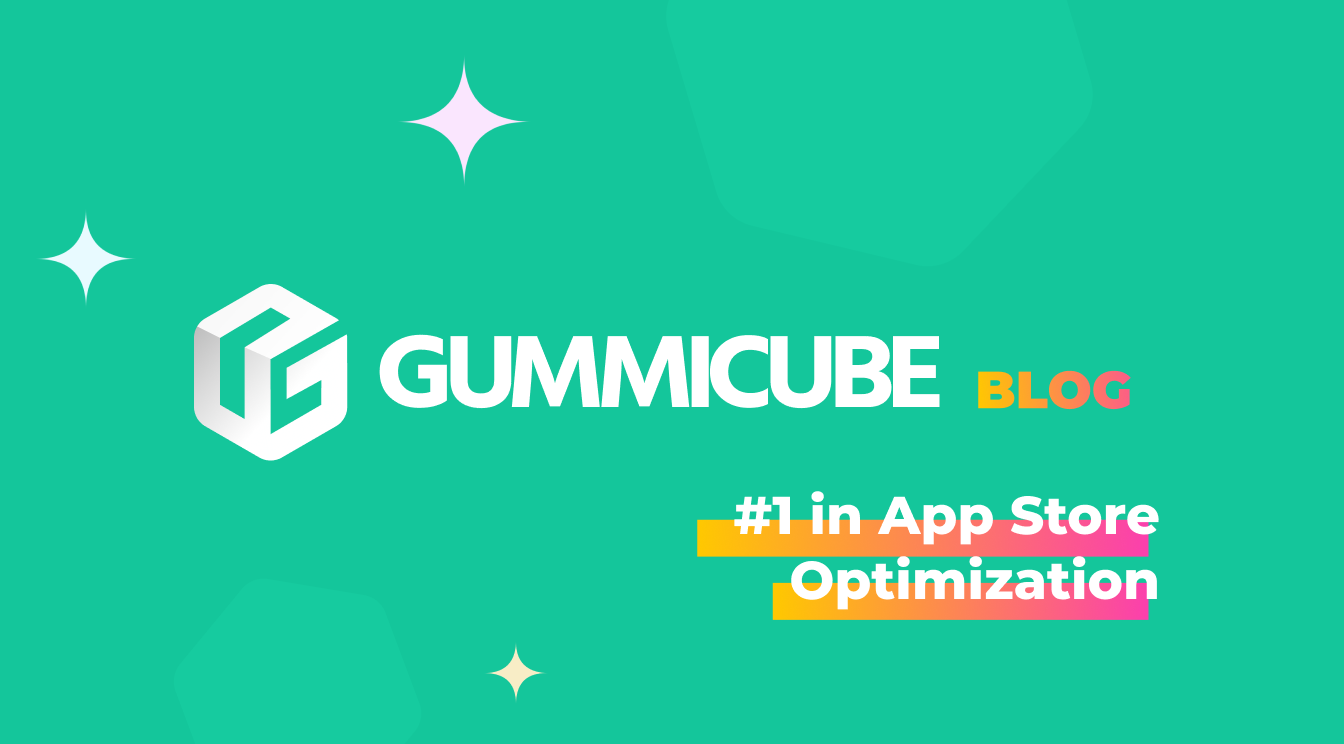
Is it better to try and rank for 1 or 2 targeted keywords, or to rank for 100's?
You might say it depends on the keywords.
If you could rank in the top ten for "Free Music" - surely that's better than ranking in the top ten for 100 less frequently searched terms - right?
Because app store traffic data is not shared by Apple or Google, it is hard to know how big the "long tail" of app store search is.
On the web, long tail search accounts for more than 50% of total search queries.
To rephrase the question using our scenario - do the 100 less frequently searched terms around a theme add up to more than the top search terms for a specific theme?
How does relevant search coverage impact app store rankings?
And how could we test that?
If we take a look at the top apps for "free music", and compare those results to overall and category rank, and # of keywords and phrases ranked for, we should be able to see if relevant coverage of keywords and phrases (the long tail) is related to overall rankings, or if being top ranked for "free music" means being ranked higher overall.
Does being ranked for "free music" beat being ranked for 100 search terms related to "free music"?
Let's dig in.
Search Term:
Free Music
The #1 app is "Free Music - Mp3 Player and Streamer!"
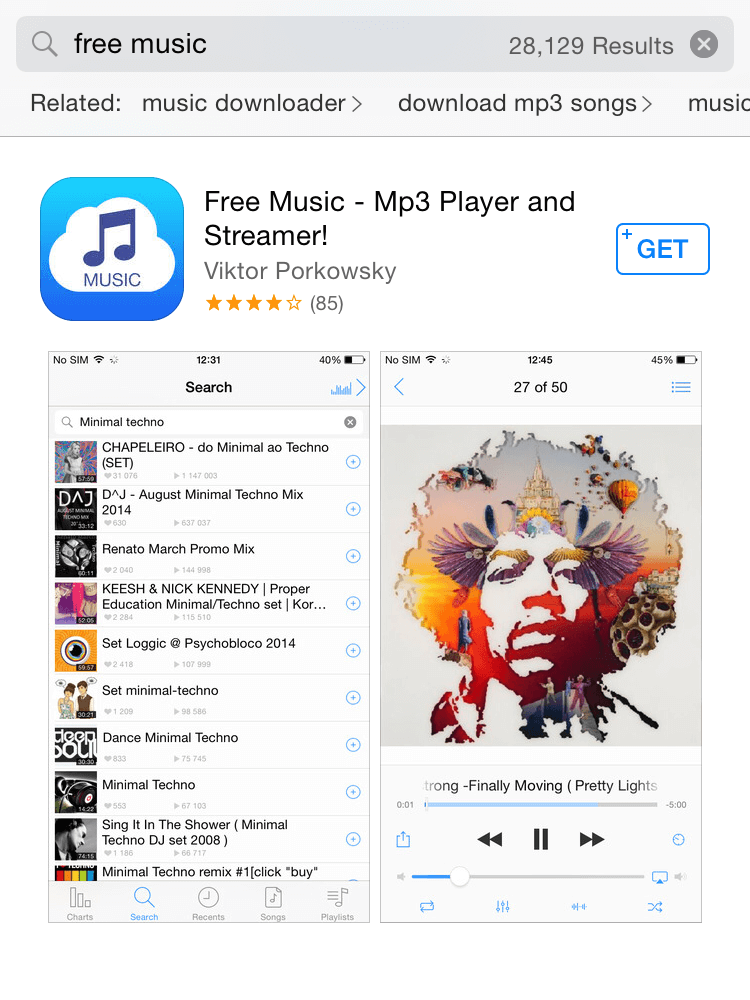
2nd is "Free Music Player - Mp3 Music Streamer and Playlist Manager."
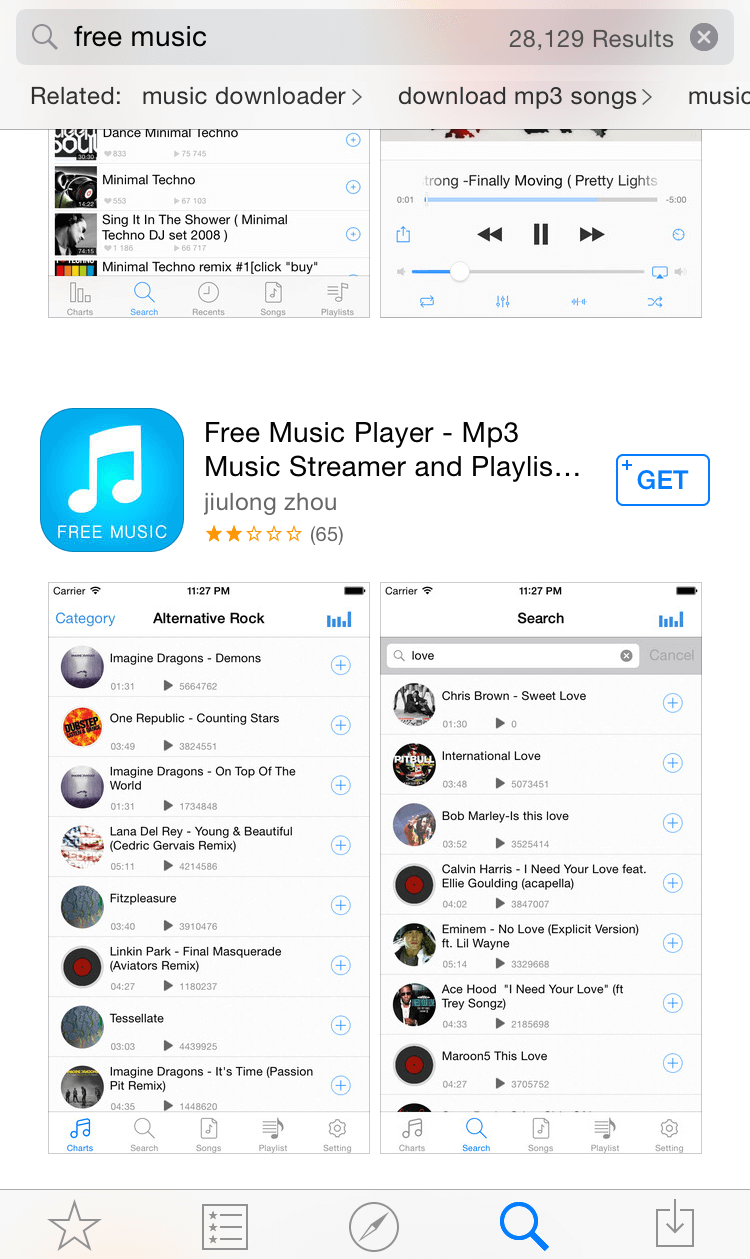
Both appear to be by indie devs - published under their name rather than a publishing company.
Spotify is 4th, Pandora is 9th and iHeartRadio is 13th.
So far so good. Let's take a quick look at the top app charts and see where any of these guys are:
Pandora is 9th overall - free-us-all, Spotify 14th and iHeart 42nd.
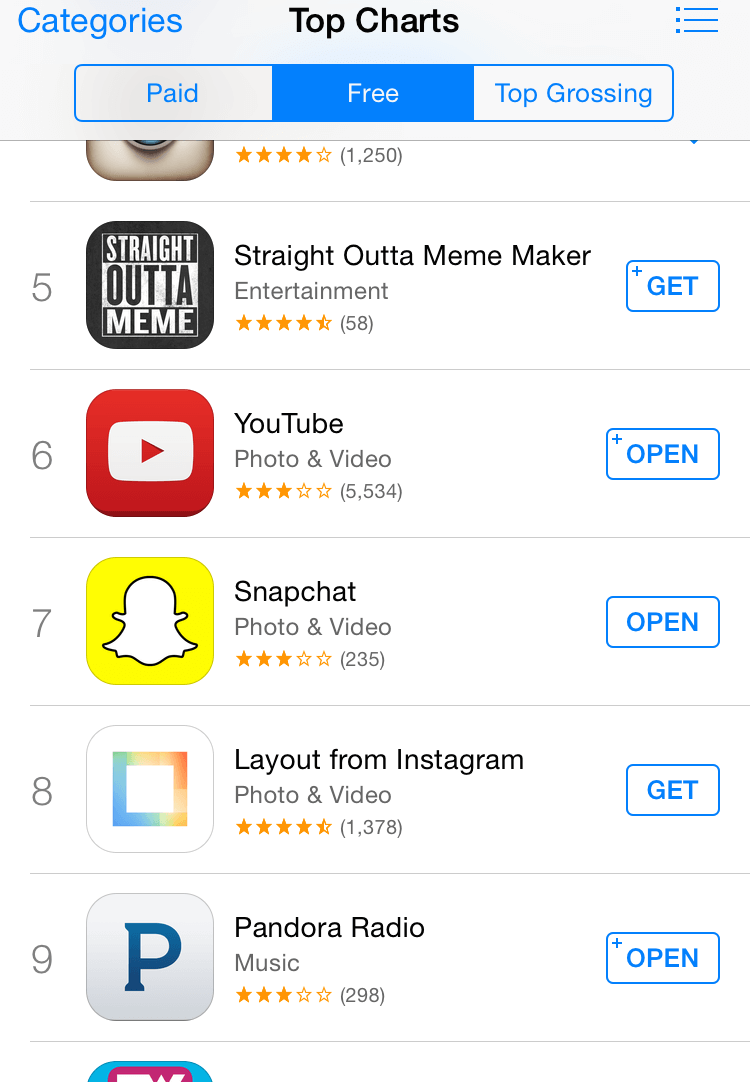
In the Music category, they are 1, 2, 4.
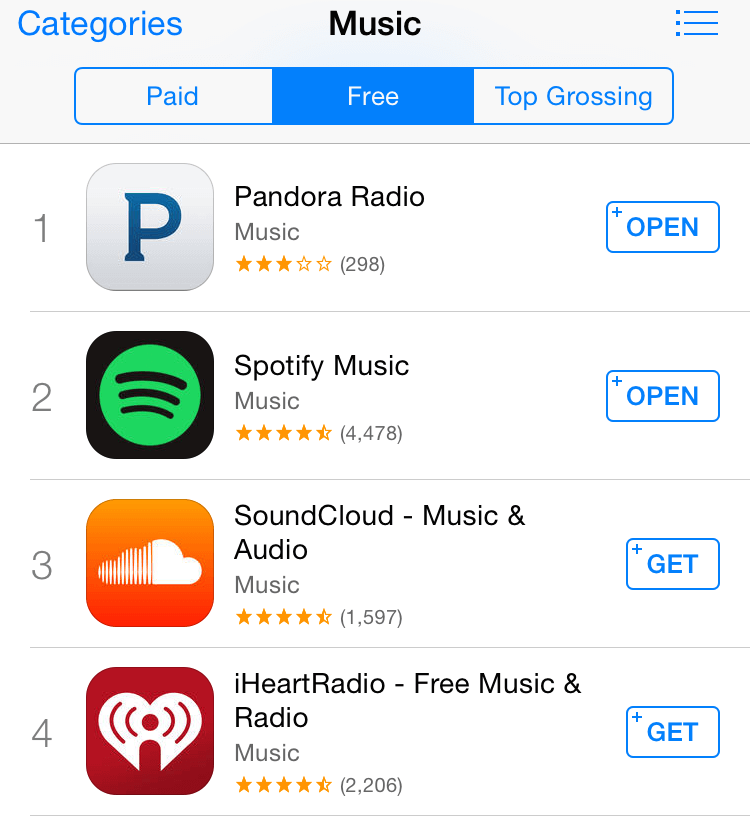
The #1 app ranked app for "free music" - "Free Music - Mp3 Player and Streamer!" - is 230 overall, and not ranked in the music category.
The #2 ranked app for "free music" is ranked 20th overall in the Music category free charts and outside of top 300 overall free.
Right away we see that "free music" - while a very-high volume search term, does not drive the top ranked apps into the top 200 overall free charts - well behind other popular apps.
So let's keep digging....
A similar term “Music apps” - also shows very high search volume.
#1 and #2 are "Musi - Unlimited Free Music For YouTube" (11th in music and 170th overall), and Spotify.
Pandora is 8th and iHeart is 14th.
Combining the terms - "free music apps"
Spotify is 3rd, iHeart is 4th Pandora is 6th.
The #1 and #2 from "free music" are not in top 25 for "free music apps".
Side Note:Who comes in at #20? QuizUp
Yikes - with these types of search results, people searching the app store either settle more something recognizable, or need to be very specific in their search.And that's exactly what our data shows - the vast majority (80%) of app store search is for multi word (2+) feature based phrases.
Is there correlation between overall or category rankings and number of phrases/keyword ranked and ranked in top 10? 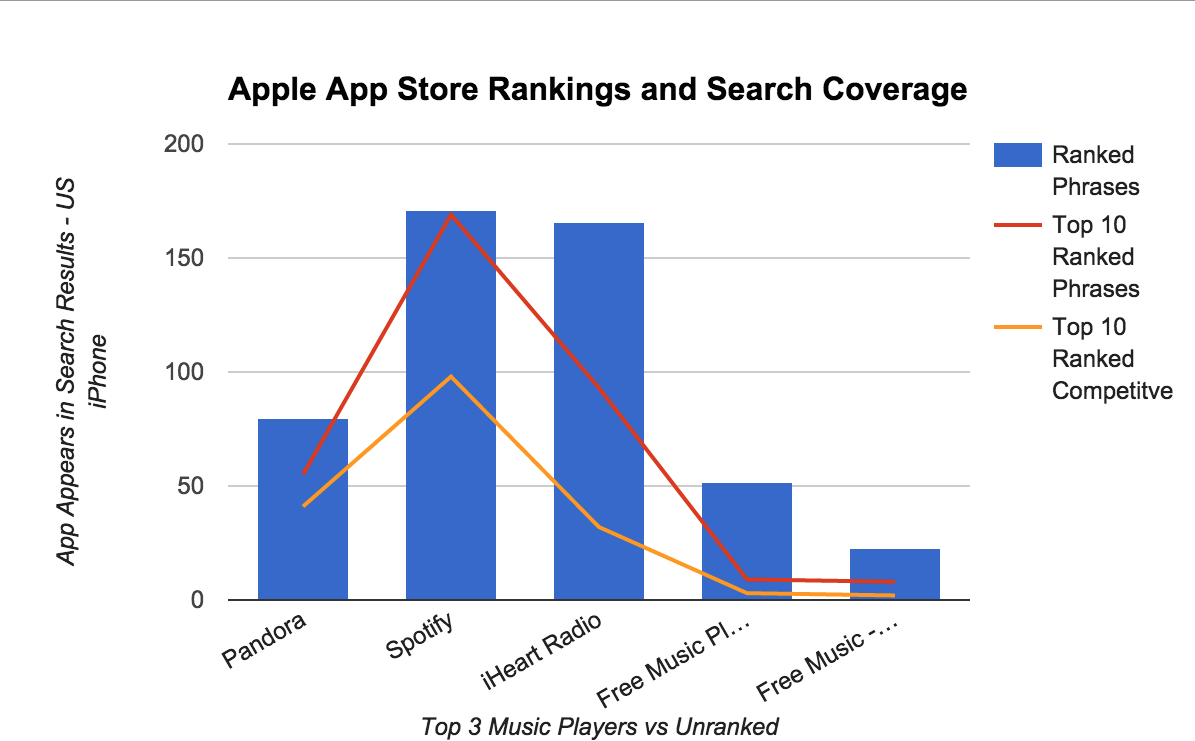 The top apps in the Music category have broad keyword coverage, and if they don't have 150+ (looking at you Pandora) - they rank in the top 10 for a wide variety or even majority of targeted phrases. Spotify ranks in the top 10 for 181 search phrases. Free Music - MP3 Player and Streamer!
The top apps in the Music category have broad keyword coverage, and if they don't have 150+ (looking at you Pandora) - they rank in the top 10 for a wide variety or even majority of targeted phrases. Spotify ranks in the top 10 for 181 search phrases. Free Music - MP3 Player and Streamer!
Apps like Spotify, Pandora and iHeart may rank higher than other apps above because:
And this is a good time to address that - yes - there are tons of variables when it comes to what could impact rankings in the app stores. There is no doubt that having a known brand, and a web or off-line presence to drive traffic and installs to your mobile app impacts rankings - as downloads do impact where an app is ranked for a keyword. But while Pandora may benefit from having a presence outside of the app store helping the app rank better for competitive search terms, both Spotify and iHeartRadio have significant search coverage and better rankings in a wide array of search terms, demonstrating a comprehensive search optimization strategy.
Targeting keywords by the number of relevant phrases they combine to make vs which individual words are estimated to drive the most traffic, your app creates an umbrella of coverage for relevant search.
So the obvious question is - what do mobile app publishers and marketers need to do to get comprehensive relevant search coverage for their apps?
Instead of thinking of ASO as targeting keywords or even phrases, think in terms of building a comprehensive keyword matrix - with the goal of building as many relevant 2 and 3 word phrases as possible.
Datacube software is designed specifically for using app store search data, and building an optimal keyword matrix for an app's Apple and Google Play app store listing.
Relevant coverage of keywords and phrases drives visibility from relevant search traffic, which drives downloads. This alone can be enough to drive your app to the top of your category charts and even top overall.

Learn how to approach App Store descriptions the right way so you can effectively engage and convert users.

Learn how to grab your audience's attention through effective and engaging app store preview videos.
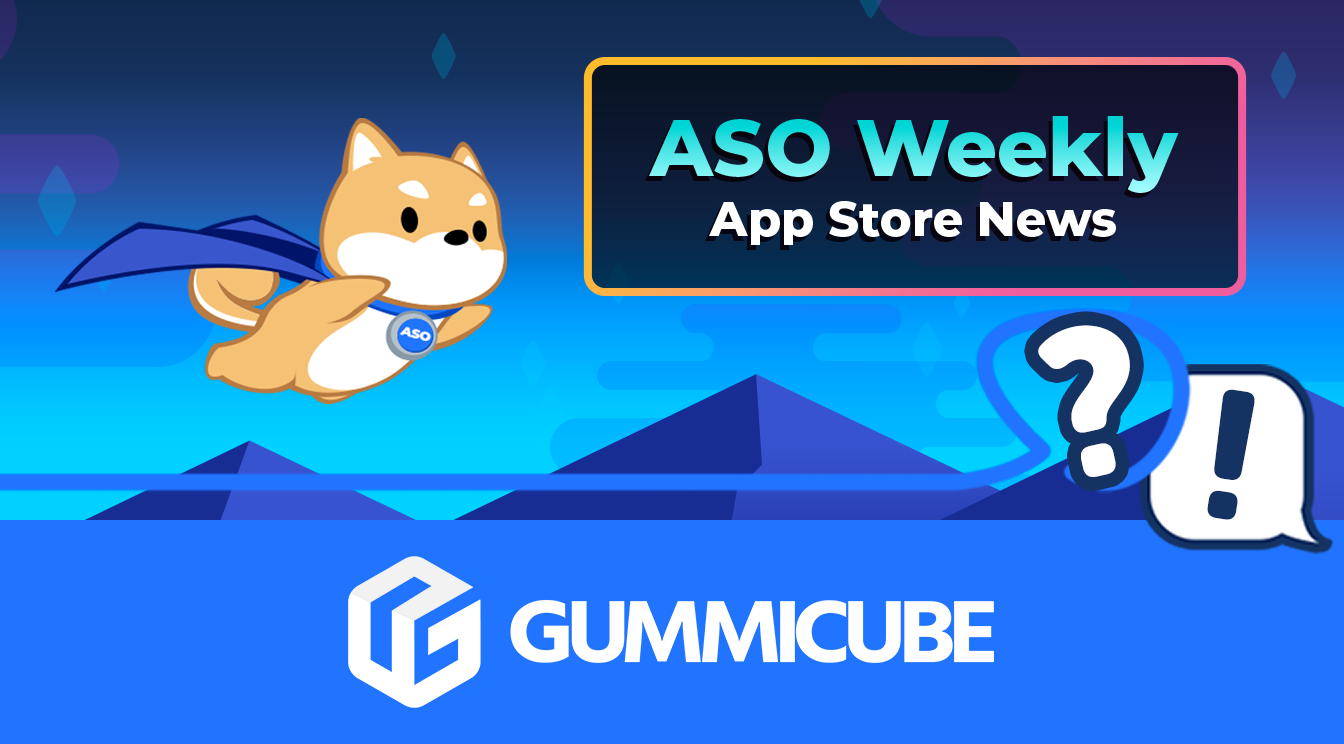
Welcome to this week’s ASO Weekly - The App Store halts gambling ads amidst outcry and the Apple takes a bite out of NFT app sales.